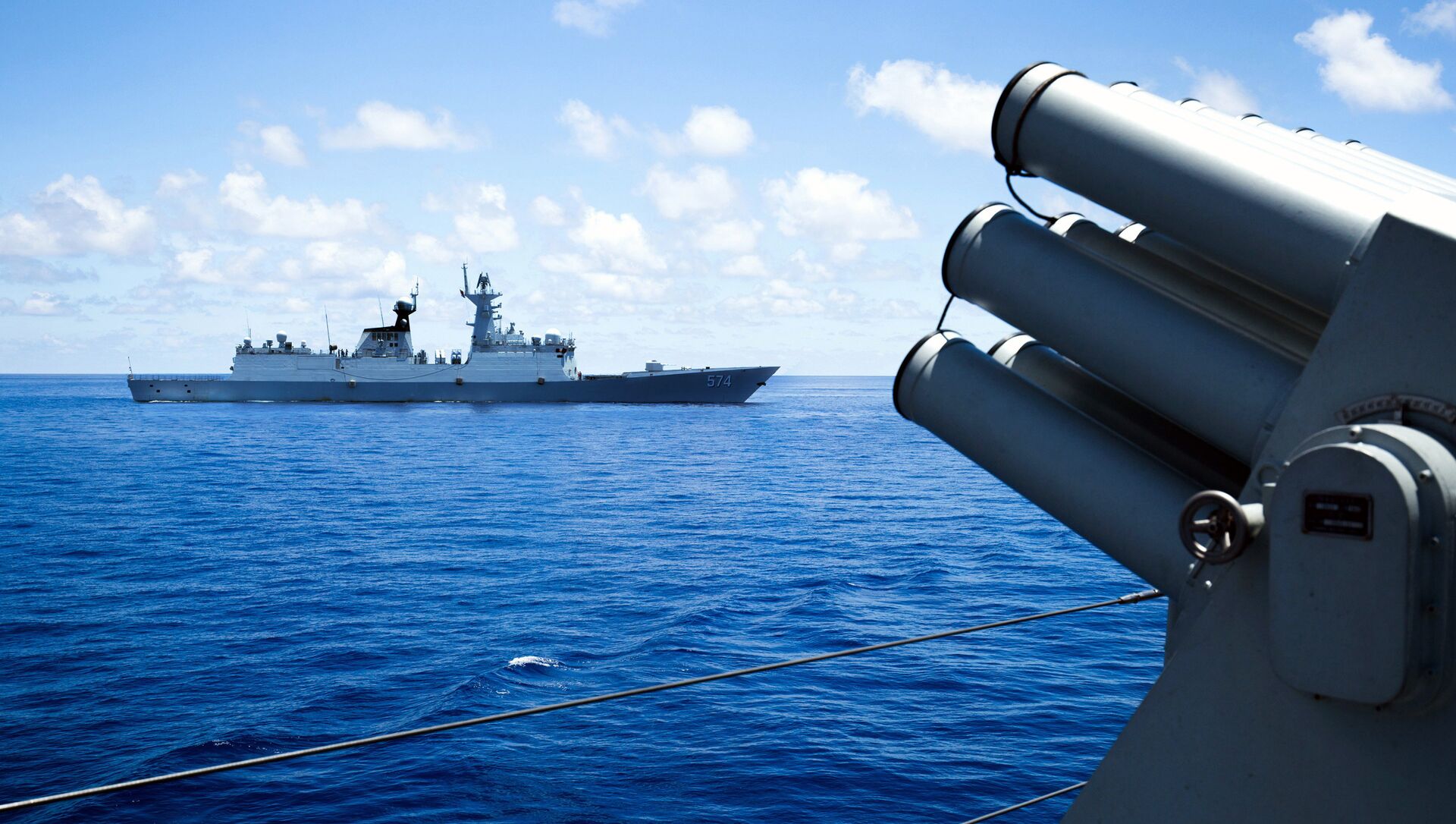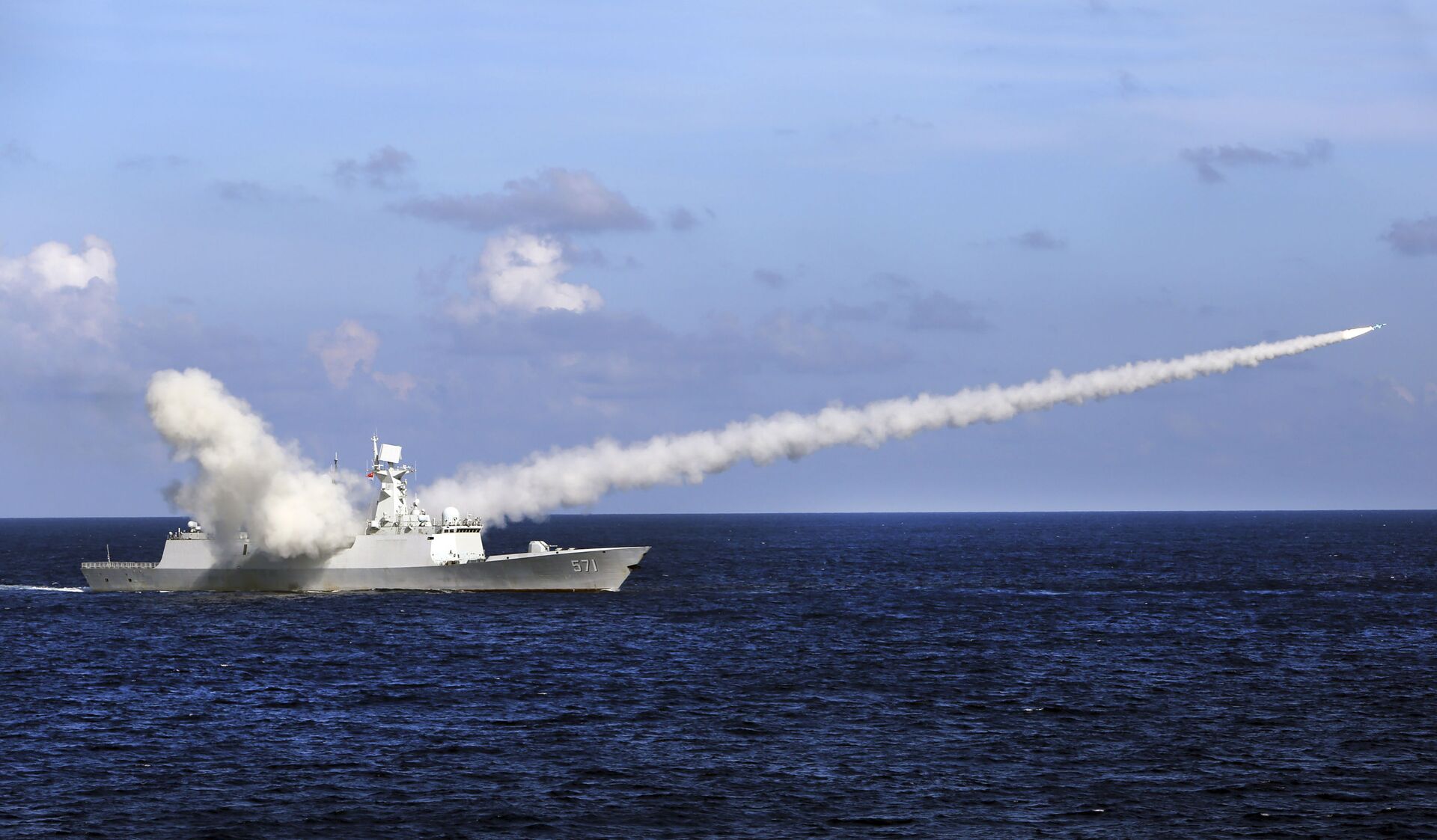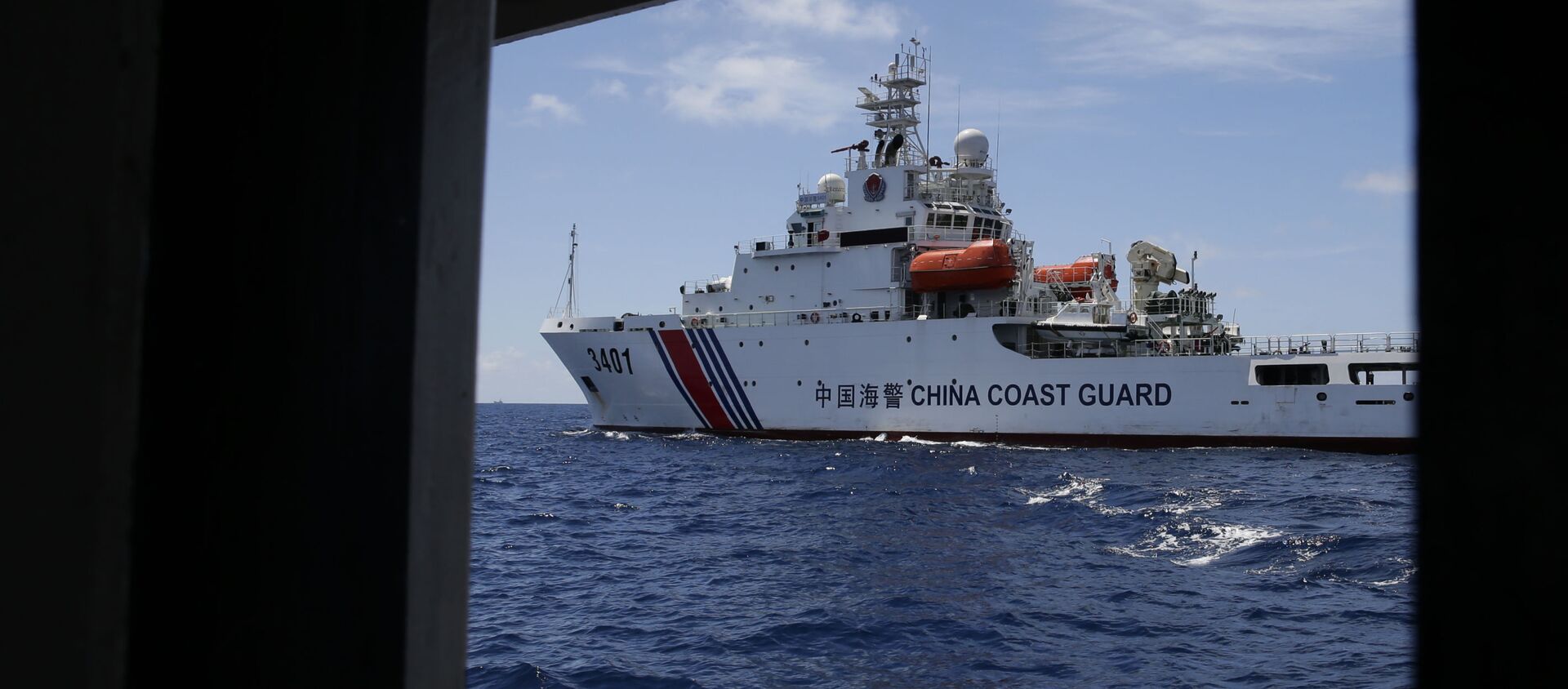https://sputnikglobe.com/20210731/britain-wants-no-escalation-in-south-china-sea-report-says-after-royal-navy-mission-irks-beijing-1083496852.html
Britain Wants No Escalation in South China Sea, Report Says After Royal Navy Mission Irks Beijing
Britain Wants No Escalation in South China Sea, Report Says After Royal Navy Mission Irks Beijing
Sputnik International
On Friday, the Chinese National Defence Ministry warned that Beijing may respond in kind to a UK aircraft carrier strike group sailing through the disputed... 31.07.2021, Sputnik International
2021-07-31T07:14+0000
2021-07-31T07:14+0000
2021-07-31T07:14+0000
newsfeed
world
china
britain
south china sea
confrontation
hms queen elizabeth
strike group
aircraft carrier
https://cdn1.img.sputnikglobe.com/img/104037/96/1040379693_0:142:3000:1839_1920x0_80_0_0_f55cdb7d7cce468c994150f2222c6d87.jpg
London has no plans to stage a naval confrontation with Beijing in the disputed waters of the South China Sea, The Guardian has cited unnamed British defence source as saying.The sources claimed that the HMS Queen Elizabeth strike group would sail "tens of miles away" from the Spratly and Paracel Islands, which aside from China are claimed by the Philippines, Brunei, Malaysia, and Vietnam.The Queen Elizabeth aircraft carrier and allied ships entered the South China Sea earlier this week and are expected to leave by the end of Saturday.The insiders' remarks follow Chinese National Defence Ministry spokesman Wu Qian warning on Friday that Beijing may retaliate against the UK aircraft carrier strike group's passage through the South China Sea.He told reporters that the ministry respects freedom of navigation but that it vehemently opposes any naval activities that may provoke controversy.He was echoed by the state-run Chinese tabloid Global Times which noted that "the very idea of a British presence in the South China Sea is dangerous".The warning came on the heels of the Chinese Foreign Ministry's statement that Beijing "firmly opposes the practice of flexing muscles at China", and that London's drive to send warships to Asia "undermines China's sovereignty and security, and harms regional peace and stability".UK Defence Secretary Touts Strike Group MissionIn April, British Defence Secretary Ben Wallace hailed the HMS Queen Elizabeth strike group's impending Indo-Pacific mission, which he said "will be flying the flag for Global Britain" to protect the country's "influence" and reaffirm its "commitment to addressing the security challenges of today and tomorrow".UK Prime Minister Boris Johnson, for his part, called the Indo-Pacific region an expanding "geopolitical centre of the world" as he unveiled Britain's new foreign policy review in late March.On China, the review argued that Beijing's increasing assertiveness may become the main "geopolitical factor" of the current decade, which is why the UK should do more to adapt to China's growing impact on the world.The review also depicted China as the country that poses the "biggest state-based threat" and "systemic challenge" to Britain's economic security, prosperity, and values.
https://sputnikglobe.com/20210712/chinese-military-says-us-warship-of-illegally-entering-waters-near-parcel-islands-in-south-china-1083364543.html
china
britain
south china sea
Sputnik International
feedback@sputniknews.com
+74956456601
MIA „Rossiya Segodnya“
2021
Oleg Burunov
https://cdn1.img.sputnikglobe.com/img/07e4/09/0b/1080424846_0:0:2048:2048_100x100_80_0_0_3d7b461f8a98586fa3fe739930816aea.jpg
Oleg Burunov
https://cdn1.img.sputnikglobe.com/img/07e4/09/0b/1080424846_0:0:2048:2048_100x100_80_0_0_3d7b461f8a98586fa3fe739930816aea.jpg
News
en_EN
Sputnik International
feedback@sputniknews.com
+74956456601
MIA „Rossiya Segodnya“
Sputnik International
feedback@sputniknews.com
+74956456601
MIA „Rossiya Segodnya“
Oleg Burunov
https://cdn1.img.sputnikglobe.com/img/07e4/09/0b/1080424846_0:0:2048:2048_100x100_80_0_0_3d7b461f8a98586fa3fe739930816aea.jpg
newsfeed, china, britain, south china sea, confrontation, hms queen elizabeth, strike group, aircraft carrier
newsfeed, china, britain, south china sea, confrontation, hms queen elizabeth, strike group, aircraft carrier
Britain Wants No Escalation in South China Sea, Report Says After Royal Navy Mission Irks Beijing
On Friday, the Chinese National Defence Ministry warned that Beijing may respond in kind to a UK aircraft carrier strike group sailing through the disputed waters of the South China Sea.
London has no plans to stage a naval confrontation with Beijing in the
disputed waters of the South China Sea,
The Guardian has cited unnamed British defence source as saying.
The sources claimed that the HMS Queen Elizabeth strike group would sail "tens of miles away" from the Spratly and Paracel Islands, which aside from China are claimed by the Philippines, Brunei, Malaysia, and Vietnam.
The Queen Elizabeth aircraft carrier and allied ships entered the South China Sea earlier this week and are expected to leave by the end of Saturday.
The insiders' remarks follow Chinese National Defence Ministry spokesman Wu Qian warning on Friday that Beijing may retaliate against the UK aircraft carrier strike group's passage through the South China Sea.
He told reporters that the ministry respects freedom of navigation but that it vehemently opposes any naval activities that may provoke controversy.
"The action should never try to destabilise regional peace", Wu pointed out, pledging that "the Chinese Navy will take any necessary actions to counter-measure such behaviour", Wu pointed out, in an apparent nod to the UK strike group.
He was echoed by the state-run Chinese tabloid
Global Times which noted that "the very idea of a British presence in
the South China Sea is dangerous".
"If London tries to establish a military presence in the region with geopolitical significance, it will only disrupt the status quo in the region […]. And if there is any real action against China, it is looking for a defeat", the news outlet argued.
The warning came on the heels of the Chinese Foreign Ministry's statement that Beijing "firmly opposes the practice of flexing muscles at China", and that London's drive to send warships to Asia "undermines China's sovereignty and security, and harms regional peace and stability".
UK Defence Secretary Touts Strike Group Mission
In April, British Defence Secretary Ben Wallace hailed the HMS Queen Elizabeth strike group's impending Indo-Pacific mission, which he said "will be flying the flag for Global Britain" to protect the country's "influence" and reaffirm its "commitment to addressing the security challenges of today and tomorrow".
UK Prime Minister Boris Johnson, for his part, called the Indo-Pacific region an expanding "geopolitical centre of the world" as he unveiled
Britain's new foreign policy review in late March.
On China, the review argued that Beijing's increasing assertiveness may become the main "geopolitical factor" of the current decade, which is why the UK should do more to adapt to China's growing impact on the world.
The review also depicted China as the country that poses the "biggest state-based threat" and "systemic challenge" to Britain's economic security, prosperity, and values.





